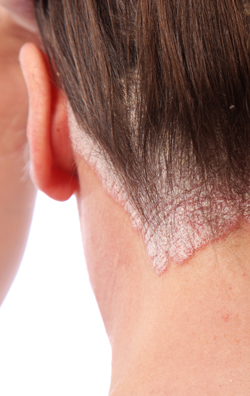
Asthma is a breathing related disorder or disease which affects the airways that carries air to and from your lungs. Those who undergo this disease or suffer from this condition are said to be asthmatic. The inner walls of the patient becomes swollen or inflammed making it more susceptible to allergic reactions which might worsen the condition leading to more complication and suffocation.
Inhaling and exhaling becomes bit difficult and symptoms such as wheezing, chest tightness, breathing problems and coughing is noticed in asthmatic patients. These symptoms are experienced mostly during the night and early morning.
Asthma often starts during childhood but can affect anyone irrespective of age. There are certain genetic and environmental factors that interact to cause asthma. It can be listed as follows:
-Atopy: an inherited tendency to develop allergies.
-A child can get it from his/her parents, if the hold a family history of having this disease.
-Respiratory infections during childhood which might develop in adulthood if not treated on time.
-Contact with some allergens or some respiratory infections at the time of childhood when the immune system is growing.
-Being a smoker or exposure to exhaust fumes or other types of pollutants may increase the chances of getting asthma.
There are certain steps that could be taken to combat asthmatic symptoms though there is no permanent cure as such:
-Note down each of the symptoms which you feel and experience like breathlessness, uneasiness, wheezing, chest tightening etc.
-Make a list of all the medications which is being consumed by you. Write down key personal information, including any major stresses or recent life changes also.
- Avoid cold drinks and other chilled items which could make you feel uneasy.
-Dusty places, and places where fumes and dust are common should be avoided. As it might elevate the sensation of coughing leading to breathlessness later.
Diagnosis and Treatment:
-Some of the diagnostic methods are listed below:
The diagnosis is basically done on the basis of a patient's medical history, physical examination and laboratory test results.
Some of the diagnostic tests also include chest x-rays, blood and sputum analysis, arterial blood analysis, spirometry (consisting of Forced Vital Capacity and Forced Expiratory Volume in One Second), allergy tests and methacholine challenge test.
Treatments are listed as below:
The inflammation in your airways is reduced by some preventive, long-term control medications.
Inhalers and bronchodilators are used to open up swollen airways quickly that interferes with the normal breathing.
There are certain medications being taken on a day-to-day basis to keep asthma under control.
For example: corticosteroids, these are anti-inflammatory drugs which could be inhaled, can be taken orally or intravenously.
Stay healthy:
-Get mild regular exercises and practise yoga and meditation too in order to keep yourself fit and healthy as regular work out would help you attain a strong heart and lungs. Take breaks between tasks and avoid activities that make your symptoms worse.
-Maintain a healthy weight and consume more of fruits and vegetables. It would also help you attain good immunity as well.
-Relaxation techniques and acupuncture would also help in great deal to cop-up with breathing problems.
-There are certain home remedies which could be adopted to tackle asthma such as intake of a blend of different types of herbs together also omega three fatty acids in some fish, flaxseed and other food items would also help combat the symptoms and conditions prevailing asthma.





